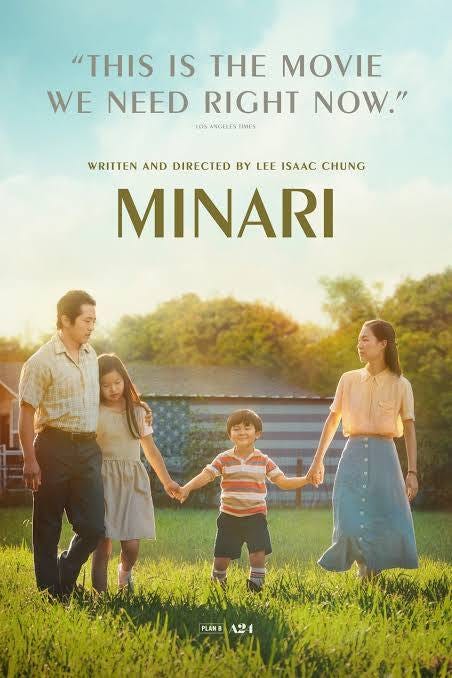The Last Duel
When Ridley Scott got it right
Ridley Scott has taken a lot of grief from historians, including the ones here in your email. Let’s face it, Gladiator, Kingdom of Heaven, and Napoleon have at time strayed far from the realms of reality in their storytelling efforts. Now, I’ve never been interested in counting rivets when it comes to looking at films. That’s boring and if there’s one thing I’m worried a casual listener might assume about a podcast called Historians At The Movies, it’s that we sit around nitpicking movies. That’s boring. It’s not compelling, either. I’m simply not interested in exactly talking about historical accuracy so long as the general truths of a story are being told.
Strangely enough, Ridley Scott made one hell of a history movie with 2021’s The Last Duel. The film is based on one of the last trials by combat in medieval France. It’s a story we know well since there is a ton of archival material surrounding it. It was incredibly well-documented and the circumstances around the trial allow us to reconstuct much of Europe in 1386. Central to the story is the allegations of rape of Marguerite de Carrouges (Jodie Comer), the wife of a low-ranking knight, Jean (Matt Damon), by another man, Jacques Le Gris (Adam Driver). What makes this film such an interesting presentation is that it depicts the central events from three different perspectives. In addition, we can sus out relationships between peasants and lords, knights and higher nobles, men and women during the era. And when people ask me what I feel is the “most historically accurate movie” (a common question that isn’t easily answered) I more and more turn to this one in response.
Unfortunately, this film did not do well in the theater. 2021 was during the height of Covid and moviegoers simply didn’t go. There may have been other factors as well. It’s possible that people tired of sword and sandals epics, and in a complaint I’m hearing more and more recently, simply didn’t have time for a two and a half hour film. Plus, there are mullets, though those are actually historically accurate.
But if you love historical epics, this may be the film for you. It’s a window to the medival era. It, like many Ridley Scott films, is simply beautiful to watch, and perhaps even better scored. When I asked Patrick Wyman, author of The Verge: Reformation, Renaissance, and Forty Years that Shook the World and host of Tides of History and The Pursuit of Dadliness to come on the pod, he eagerly requested this film. Our conversation talks about why Patrick thinks is one of the most accurate films he has seen, along with questions over social status, chivalry, warfare, religion, the Plague, and even the Ottoman Empire. In the excerpt below, Patrick talks about the rehearsed violence practiced by medieval men at arms:
Patrick as a guest is extremely polished, and so much of my time with him was just shutting up and letting him do his thing. He’s so damn good. Now here’s the big question: do you need to have seen this film to listen to the pod? Ordinarily I’d say yes, go watch then listen. But in this episode it’s not necessary. If you want a deep dive in on the Middle Ages, warfare, relationships, the Plague, or even real estate deals, this is your episode. Find it below.
About our guest
Patrick Wyman holds a PhD in history from the University of Southern California. He previously worked as a sports journalist, covering mixed martial arts and boxing from 2013 to 2018. His work has been featured in Deadspin, The Washington Post, Bleacher Report, and others. He is currently host of the podcast, Tides of History, and previously the host of Fall of Rome. You can find him on twitter at @Patrick_Wyman .
And don’t forget this Sunday, December 10th at 8pm eastern we’ll be livetweeting Minari, available on Netflix. Hope to see you there.
Hey, thanks for being here. Talk at ya soon.
-JWH



One of the elements I appreciated in The Last Duel was the spot-on cultural elements, even to the discussion of popular literature between Marguerite and Le Gris: he asks if she likes La Roman de la Rose, a satirical allegory that purports to be about courtly love but is really about seduction and rape, and she answers that she favors Parsifal, which is about a morally-pure knight seeking the Holy Grail. The exchange illustrates their cultural differences. Le Gris misses her point. He honestly believes that his rape of her is appropriate because he followed the rule book and she's nothing but an object of his desire. Additionally, the discussion depicts Le Gris as the nouveau-courtier he is -- too unpolished to recognize the difference between metaphor and real behavior.
My two cents: one underestimated reason I think this film failed at the box office (and one I heard a lot of at the time and was written about by some female critics) is that many people, women especially, didn't want to watch a film about sexual violence (or at least the possibility that sexual violence occurred). We deal with the potential of violence being directed against us every day: why would we want to watch 2+ hours of it from a director whose films have a *really* lousy track record on these sorts of issues? I know that was my feeling as I read the plot summaries, and it still is. Hard pass. Might listen to this, though. Cheers.